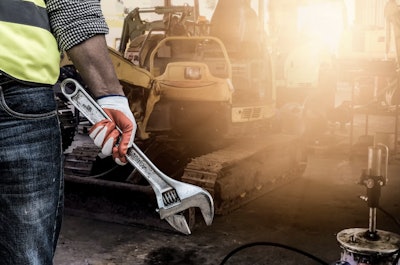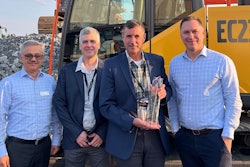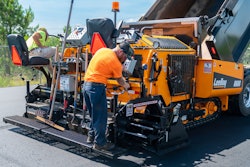
While on summer vacation with my family, I finished "Grant" by Ron Chernow. As a Southern boy, I haven't read much about the Civil War from a Union perspective.
Coming from the South, I’ve always seen the North as the aggressors or invaders. Now, for those from the North, before you tune me out or stop reading this article, I want to say I have greater respect and understanding of the North, especially from Grant's point of view. This article isn’t about the Civil War, but a large part of Grant's biography, as you might expect, focuses on his Civil War era.
What I find interesting or even shocking is that, as you study history and read various books about different wars in our history, a striking or eye-opening fact is that the civilians, the everyday ordinary people – whether Nazis are bombing Britain or the Union Army is invading and burning the South – every day, citizens have to wake up and go to work.
For whatever reason, I used to think that when you go to war, everything stops and all focus shifts to the crisis. But that’s not true. If you’re in the Navy, a soldier, or a Marine, then, yes, you go off to war, and that becomes your main focus and goal. However, everyone back home, or the civilians in the war-torn country, still have to wake up each morning, take a shower, make breakfast, and go to work at the office or factory.
2025 has been unpredictable, and I believe the second half will be just as unstable. With tariff swings, conflicts in the Middle East causing ripple effects, federal funds being frozen and then released, and not to mention the “big beautiful bill.”
What do the next six months of 2025 look like? What is on the horizon? How can we position ourselves to either capitalize on the political landscape or at least shield our dealerships from it? For most dealers who have had an abundance of iron on the yard, we’re starting to adjust our whole goods inventory levels to a more appropriate level. We're finally recovering from the overcorrection by manufacturers following the Covid-19 debacle. But how will tariffs impact inventory levels and the cost of new equipment moving forward?
Most dealers who rely heavily on whole goods sales are very worried about the turbulence from tariffs, Middle East conflicts that could disrupt supply chains, federal funds being withheld, and the Fed's refusal to lower interest rates.
These challenges are real, but they reveal a deeper issue: overreliance on new equipment sales. I’m not suggesting we ignore these issues or avoid planning for them. Instead, I want to emphasize that many dealerships will struggle to succeed in these turbulent times if they depend too heavily on the new equipment market.
Over the past few years, I’ve had the chance to work directly with dealerships that were feeling the same pressure – margins shrinking, sales slowing, and no clear plan ahead. That experience led me to create the Absorption Optimization Program, a framework built around one simple idea: a dealership that focuses on parts, service, and internal efficiency can survive almost any economic or political challenge. Whether it’s a spike in tariffs, a freeze in interest rates, or a sudden drop in demand for whole goods, a fully absorbed, financially disciplined dealership isn’t just more stable – it’s more profitable.
What should a dealership do? First, it must recognize that it has three other departments that bring in revenue and larger profits than the new equipment sales department.
But to address the new sales challenge, we need to adjust our pricing and be honest with customers that the price increases are caused by tariffs or low supply. Also, the dealer should make the most of ordering inventory at pre-tariff prices whenever possible. They should also optimize the inventory they currently have on hand. This is not a time for salespeople to sit in their offices waiting for customers to come in. Instead, the sales team should be proactive by visiting construction sites and fields to sell their existing inventory.
Dealerships must remember they have a used equipment department. When supply is limited, the cost of new equipment increases; this is where used equipment becomes valuable. This enables dealers who can rebuild, refurbish, or restore used equipment to like-new condition to take advantage of the current market volatility. Showing their resilience amid market fluctuations and the political landscape. Not only is used equipment a crucial tool for maintaining revenue, but it is also vital for growing revenues in a turbulent and fluctuating market with uncertain demand and supply.
Rental equipment can be a valuable asset when there are restrictions or limitations on the availability of new equipment. Not only will your rental inventory expand your used stock for sale, but it also provides a low-cost alternative – renting instead of buying – for customers trying to navigate the challenging market we face.
As a supporter of product support, this highlights the need for a dealer to be fully committed to parts and service. Dealerships that are 100% absorbed, well-managed, and focused not only on boosting parts and service profitability but also on maintaining financial discipline and restraint will find it easier to weather this storm than those that depend too much on quick profits from new equipment sales.
Most importantly, like the business owners during the Civil War or World War II in Europe, the dealerships that wake up each morning, go to work, and do the little things right – those that take care of their customers and stay focused on their mission – will succeed.
Ultimately, it’s about customer service. It’s about caring for our customers by acknowledging that they also face many uncertainties. By being creative and thinking outside the box, dealers should find ways to provide their customers with the products and services needed to keep moving forward through this unpredictable, or at least ambiguous, next six months.
If we can survive and thrive during uncertain times, imagine how well we will do when the “big beautiful bill” is signed into law. When the infrastructure cash windfall hits the market and tariffs are fully implemented, construction is expected to boom as manufacturers build factories and facilities in the United States to offset the costs of the tariffs. When the construction market explodes, we will be prepared.
Regardless of the economic or political landscape, successful dealerships are those that wake up every morning, go to work, and stay focused on managing their business while providing best-in-class customer service. Central to this is a product support-oriented dealership that’s fully committed and has 100% absorption. In uncertain times, it’s more important to have balanced and diversified revenue streams rather than relying too heavily on new equipment sales.
John Dowling is a United States Marine veteran who has had a successful 25-year career in the Product Support Industry. He started out as an equipment mechanic and worked his way up eventually to branch manager of a heavy equipment dealership, followed by a position as a field service representative for a major heavy equipment manufacturer. In his last role before entering the recruiting and consulting industries, John was Director of Product Support at a 9-location heavy equipment dealership.











